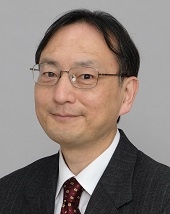- HOME>
- General Information>
- Message from the Dean
Message from the Dean
Faculty for Students with Diverse Interests
 Established in 1996, the Faculty of Regional Studies at Gifu University was the first of its kind in Japan to focus on regional studies. It offers a cross-disciplinary and interdisciplinary education, encompassing a wide range of specialized fields within the humanities, social sciences, and natural sciences. The faculty is dedicated to identifying and addressing challenges facing regional communities and human culture. Through its educational and research activities, including partnerships with the local community, the faculty is recognized as a vital contributor to regional development and local innovation.
Established in 1996, the Faculty of Regional Studies at Gifu University was the first of its kind in Japan to focus on regional studies. It offers a cross-disciplinary and interdisciplinary education, encompassing a wide range of specialized fields within the humanities, social sciences, and natural sciences. The faculty is dedicated to identifying and addressing challenges facing regional communities and human culture. Through its educational and research activities, including partnerships with the local community, the faculty is recognized as a vital contributor to regional development and local innovation.
Graduates from the Faculty of Regional Studies, trained to understand regional issues from diverse perspectives, often pursue careers as civil servants. However, they also find employment across a broad range of industries, particularly in the local business sector, including finance, insurance, wholesale, retail, and manufacturing.
The two departments within the Faculty of Regional Studies offer a highly flexible curriculum, allowing students to deepen their studies in areas of personal interest rather than follow a rigidly structured program aimed at obtaining licenses and qualifications. Students can explore a variety of subjects within the Department of Policy Studies and the Department of Cultural Studies, each offering two distinct courses. Additionally, through specialized seminars and graduation research, students have the opportunity to delve deeply into specific fields within the humanities and sciences--such as economics, law, political science, geography, history, anthropology, sociology, education, psychology, philosophy, literature, linguistics, physics, chemistry, biology, and more--to enhance their expertise in their chosen field.
The Department of Policy Studies offers two courses: "Regional Policy" and "Environmental Policy." The Department of Cultural Studies also offers two courses: "Life and Society" and "Humanity and Culture." Students have the flexibility to choose courses and seminars across disciplinary boundaries. For example, a student studying economics in the Regional Policy course within the Department of Policy Studies can enroll in a specialized seminar in philosophy and write a thesis related to philosophy. This department is ideal for those who prefer to explore various academic paths and gradually deepen their research, rather than for those solely focused on a single goal and moving forward at full speed.
As mentioned, the Faculty of Regional Studies offers a variety of courses across different academic fields, but students can further expand their options by taking classes from other faculties or the School of Social System Management as free electives, or by utilizing the credit transfer system for the University-Wide General Education Program. Additionally, students can participate in the Education Program for Future Community Leaders, offered by Gifu University's Center for Collaborative Study with the Community, to earn the title of "Gifu Future Community Leader."
The Faculty of Regional Studies also offers compulsory classes such as "Community Service Guidance" and "Applied Field Study," which involve practical fieldwork outside the university. Additionally, the Program of International Studies in Liberal Arts allows students to study abroad for a year while still graduating within four years.
To address various problems in the regional community, it is crucial to understand the constraints that hinder the realization of the residents' ideals. You need to consider ways to remove these constraints, and if they can't be removed, find solutions within them. Given limited resources and manpower, a process of trial and error may be necessary to discover the best solution, even if it is not a perfectly ideal one.
On the other hand, you might be able to challenge what was once considered a constraint, break free from conventional thinking, and propose a surprising solution that no one had imagined before. Those who can offer the unexpected are the ones who can truly help people in the community, especially those who feel constrained by the common belief in "what must be done." Why not study at the Faculty of Regional Studies and introduce a fresh perspective on life to the local community?
Finally, I would like to briefly introduce our graduate school. The Graduate School of Regional Studies (Master's Program) comprises the Department of Regional Policy and the Department of Cultural Studies. It attracts not only graduates from the Faculty of Regional Studies but also graduates from other universities, working professionals, and international students. The Graduate School of Regional Studies fosters highly specialized professionals and researchers through education and research that aim to develop advanced applied skills and a broader international perspective.
UCHIDA Masaru, Dean of Faculty of Regional Studies
